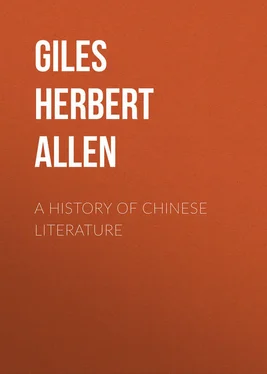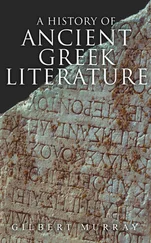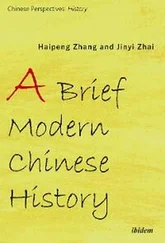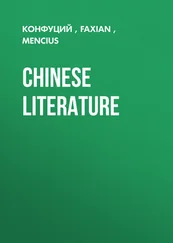Herbert Giles - A History of Chinese Literature
Здесь есть возможность читать онлайн «Herbert Giles - A History of Chinese Literature» — ознакомительный отрывок электронной книги совершенно бесплатно, а после прочтения отрывка купить полную версию. В некоторых случаях можно слушать аудио, скачать через торрент в формате fb2 и присутствует краткое содержание. Жанр: Критика, foreign_antique, foreign_prose, на английском языке. Описание произведения, (предисловие) а так же отзывы посетителей доступны на портале библиотеки ЛибКат.
- Название:A History of Chinese Literature
- Автор:
- Жанр:
- Год:неизвестен
- ISBN:нет данных
- Рейтинг книги:5 / 5. Голосов: 1
-
Избранное:Добавить в избранное
- Отзывы:
-
Ваша оценка:
- 100
- 1
- 2
- 3
- 4
- 5
A History of Chinese Literature: краткое содержание, описание и аннотация
Предлагаем к чтению аннотацию, описание, краткое содержание или предисловие (зависит от того, что написал сам автор книги «A History of Chinese Literature»). Если вы не нашли необходимую информацию о книге — напишите в комментариях, мы постараемся отыскать её.
A History of Chinese Literature — читать онлайн ознакомительный отрывок
Ниже представлен текст книги, разбитый по страницам. Система сохранения места последней прочитанной страницы, позволяет с удобством читать онлайн бесплатно книгу «A History of Chinese Literature», без необходимости каждый раз заново искать на чём Вы остановились. Поставьте закладку, и сможете в любой момент перейти на страницу, на которой закончили чтение.
Интервал:
Закладка:
LIEH TZŬ
The works of Lieh Tzŭ, in two thin volumes, may be procured at any Chinese book-shop. These volumes profess to contain the writings of a Taoist philosopher who flourished some years before Chuang Tzŭ, and for a long time they received considerable attention at the hands of European students, into whose minds no suspicion of their real character seems to have found its way. Gradually the work came to be looked upon as doubtful, then spurious; and now it is known to be a forgery, possibly of the first or second century A.D. The scholar – for he certainly was one – who took the trouble to forge this work, was himself the victim of a strange delusion. He thought that Lieh Tzŭ, to whom Chuang Tzŭ devotes a whole chapter, had been a live philosopher of flesh and blood. But he was in reality nothing more than a figment of the imagination, like many others of Chuang Tzŭ’s characters, though his name was less broadly allegorical than those of All-in-Extremes, and of Do-Nothing-Say-Nothing, and others. The book attributed to him is curious enough to deserve attention. It is on a lower level of thought and style than the work of Chuang Tzŭ; still, it contains much traditional matter and many allusions not found elsewhere. To its author we owe the famous, but of course apocryphal, story of Confucius meeting two boys quarrelling about the distance of the sun from the earth. One of them said that at dawn the sun was much larger than at noon, and must consequently be much nearer; but the other retorted that at noon the sun was much hotter, and therefore nearer than at dawn. Confucius confessed himself unable to decide between them, and was jeered at by the boys as an impostor. But of all this work perhaps the most attractive portion is a short story on Dream and Reality: —
“A man of the State of Chêng was one day gathering fuel, when he came across a startled deer, which he pursued and killed. Fearing lest any one should see him, he hastily concealed the carcass in a ditch and covered it with plaintain leaves, rejoicing excessively at his good fortune. By and by, he forgot the place where he had put it, and, thinking he must have been dreaming, he set off towards home, humming over the affair on his way.
“Meanwhile, a man who had overheard his words, acted upon them, and went and got the deer. The latter, when he reached his house, told his wife, saying, ‘A woodman dreamt he had got a deer, but he did not know where it was. Now I have got the deer; so his dream was a reality.’ ‘It is you,’ replied his wife, ‘who have been dreaming you saw a woodman. Did he get the deer? and is there really such a person? It is you who have got the deer: how, then, can his dream be a reality?’ ‘It is true,’ assented the husband, ‘that I have got the deer. It is therefore of little importance whether the woodman dreamt the deer or I dreamt the woodman.’
“Now when the woodman reached his home, he became much annoyed at the loss of the deer; and in the night he actually dreamt where the deer then was, and who had got it. So next morning he proceeded to the place indicated in his dream, – and there it was. He then took legal steps to recover possession; and when the case came on, the magistrate delivered the following judgment: – ‘The plaintiff began with a real deer and an alleged dream. He now comes forward with a real dream and an alleged deer. The defendant really got the deer which plaintiff said he dreamt, and is now trying to keep it; while, according to his wife, both the woodman and the deer are but the figments of a dream, so that no one got the deer at all. However, here is a deer, which you had better divide between you.’”
HAN FEI TZŬ
Han Fei Tzŭ, who died B.C. 233, has left us fifty-five essays of considerable value, partly for the light they throw upon the connection between the genuine sayings of Lao Tzŭ and the Tao-Tê-Ching , and partly for the quaint illustrations he gives of the meaning of the sayings themselves. He was deeply read in law, and obtained favour in the eyes of the First Emperor (see Book II., ch. i.); but misrepresentations of rivals brought about his downfall, and he committed suicide in prison. We cannot imagine that he had before him the Tao-Tê-Ching . He deals with many of its best sayings, which may well have come originally from an original teacher, such as Lao Tzŭ is supposed to have been, but quite at random and not as if he took them from an orderly work. And what is more, portions of his own commentary have actually slipped into the Tao-Tê-Ching as text, showing how this book was pieced together from various sources. Again, he quotes sentences not to be found in the Tao-Tê-Ching . He illustrates such a simple saying as “To see small beginnings is clearness of sight,” by drawing attention to a man who foresaw, when the tyrant Chou Hsin (who died B.C. 1122) took to ivory chopsticks, that the tide of luxury had set in, to bring licentiousness and cruelty in its train, and to end in downfall and death.
Lao Tzŭ said, “Leave all things to take their natural course.” To this Han Fei Tzŭ adds, “A man spent three years in carving a leaf out of ivory, of such elegant and detailed workmanship that it would lie undetected among a heap of real leaves. But Lieh Tzŭ said, ‘If God Almighty were to spend three years over every leaf, the trees would be badly off for foliage.’”
Lao Tzŭ said, “The wise man takes time by the forelock.” Han Fei Tzŭ adds, “One day the Court physician said to Duke Huan, ‘Your Grace is suffering from an affection of the muscular system. Take care, or it may become serious.’ ‘Oh no,’ replied the Duke, ‘I have nothing the matter with me;’ and when the physician was gone, he observed to his courtiers, ‘Doctors dearly love to treat patients who are not ill, and then make capital out of the cure.’ Ten days afterwards, the Court physician again remarked, ‘Your Grace has an affection of the flesh. Take care, or it may become serious.’ The Duke took no notice of this, but after ten days more the physician once more observed, ‘Your Grace has an affection of the viscera. Take care, or it may become serious.’ Again the Duke paid no heed; and ten days later, when the physician came, he simply looked at his royal patient, and departed without saying anything. The Duke sent some one to inquire what was the matter, and to him the physician said, ‘As long as the disease was in the muscles, it might have been met by fomentations and hot applications; when it was in the flesh, acupuncture might have been employed; and as long as it was in the viscera, cauterisation might have been tried; but now it is in the bones and marrow, and naught will avail.’ Five days later, the Duke felt pains all over his body, and sent to summon his physician; but the physician had fled, and the Duke died. So it is that the skilful doctor attacks disease while it is still in the muscles and easy to deal with.”
HUAI-NAN TZŬ
To clear off finally this school of early Taoist writers, it will be necessary to admit here one whose life properly belongs to the next period. Liu An, a grandson of the founder of the Han dynasty, became Prince of Huai-nan, and it is as Huai-nan Tzŭ, the Philosopher of that ilk, that he is known to the Chinese people. He wrote an esoteric work in twenty-one chapters, which we are supposed still to possess, besides many exoteric works, such as a treatise on alchemy, none of which are extant. It is fairly certain, however, that alchemy was not known to the Chinese until between two and three centuries later, when it was introduced from the West. As to the book which passes under his name, it is difficult to assign to it any exact date. Like the work of Lieh Tzŭ, it is interesting enough in itself; and what is more important, it marks the transition of the pure and simple Way of Lao Tzŭ, etherealised by Chuang Tzŭ, to the grosser beliefs of later ages in magicians and the elixir of life. Lao Tzŭ urged his fellow-mortals to guard their vitality by entering into harmony with their environment. Chuang Tzŭ added a motive, “to pass into the realm of the Infinite and make one’s final rest therein.” From which it is but a step to immortality and the elixir of life.
Читать дальшеИнтервал:
Закладка:
Похожие книги на «A History of Chinese Literature»
Представляем Вашему вниманию похожие книги на «A History of Chinese Literature» списком для выбора. Мы отобрали схожую по названию и смыслу литературу в надежде предоставить читателям больше вариантов отыскать новые, интересные, ещё непрочитанные произведения.
Обсуждение, отзывы о книге «A History of Chinese Literature» и просто собственные мнения читателей. Оставьте ваши комментарии, напишите, что Вы думаете о произведении, его смысле или главных героях. Укажите что конкретно понравилось, а что нет, и почему Вы так считаете.












